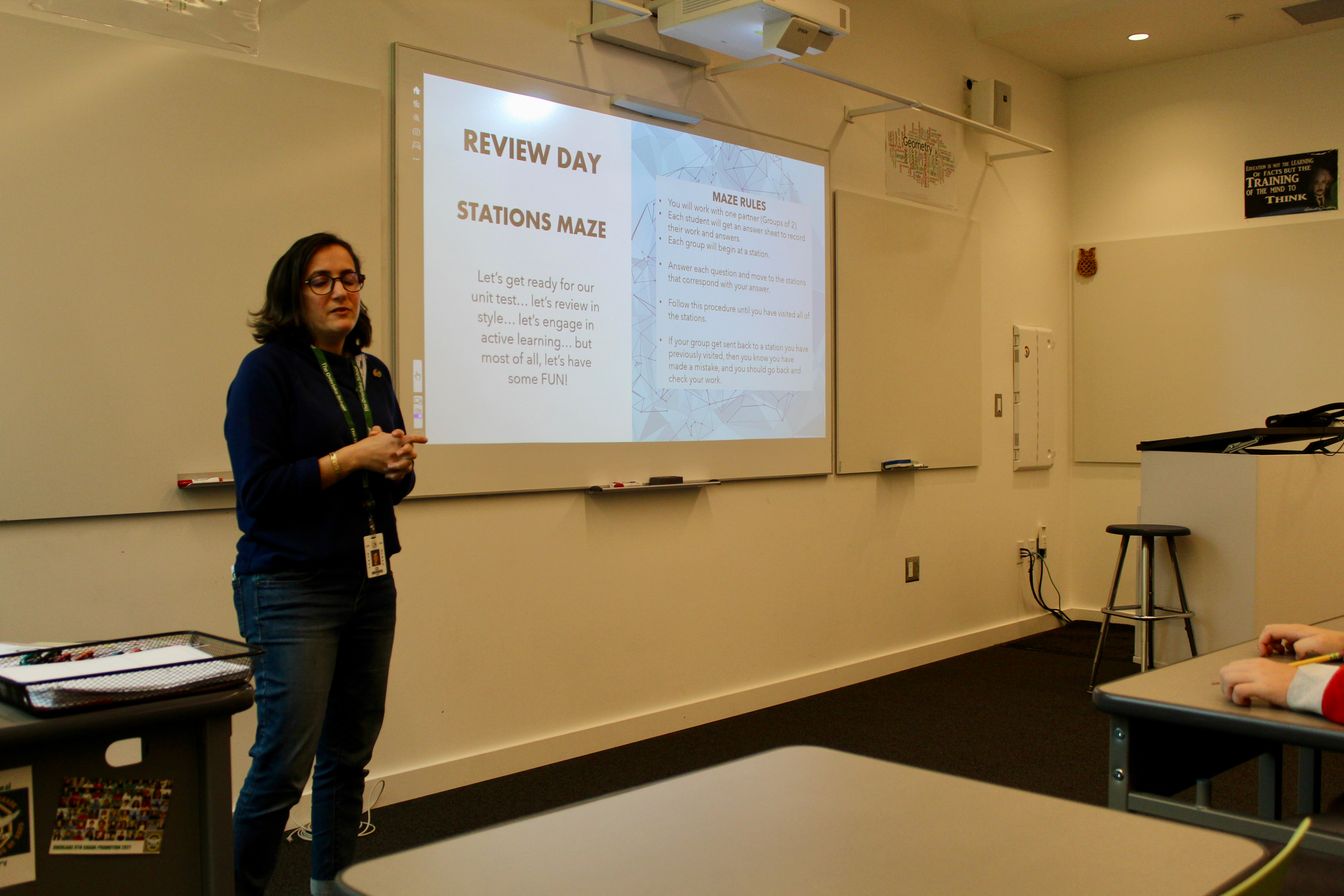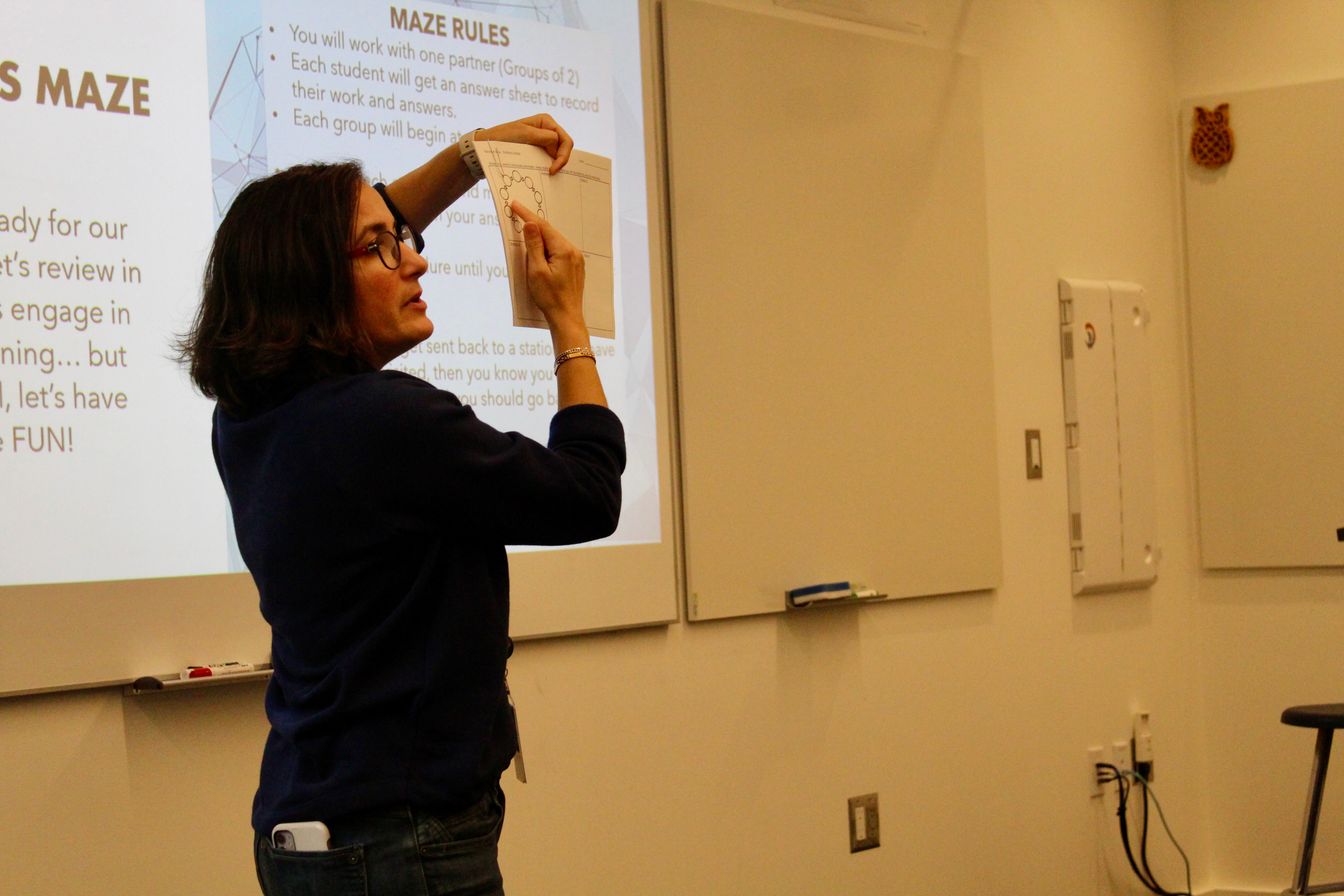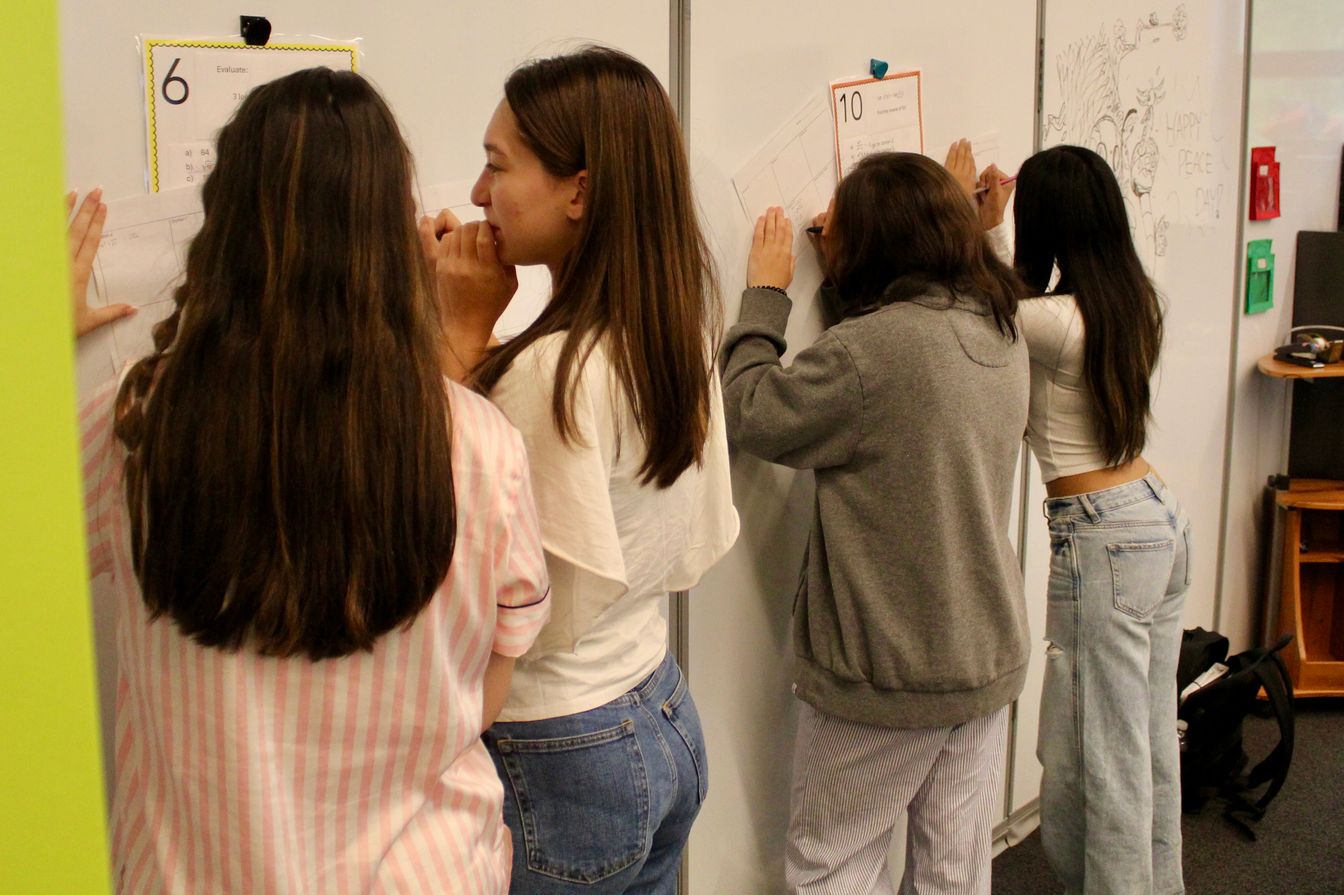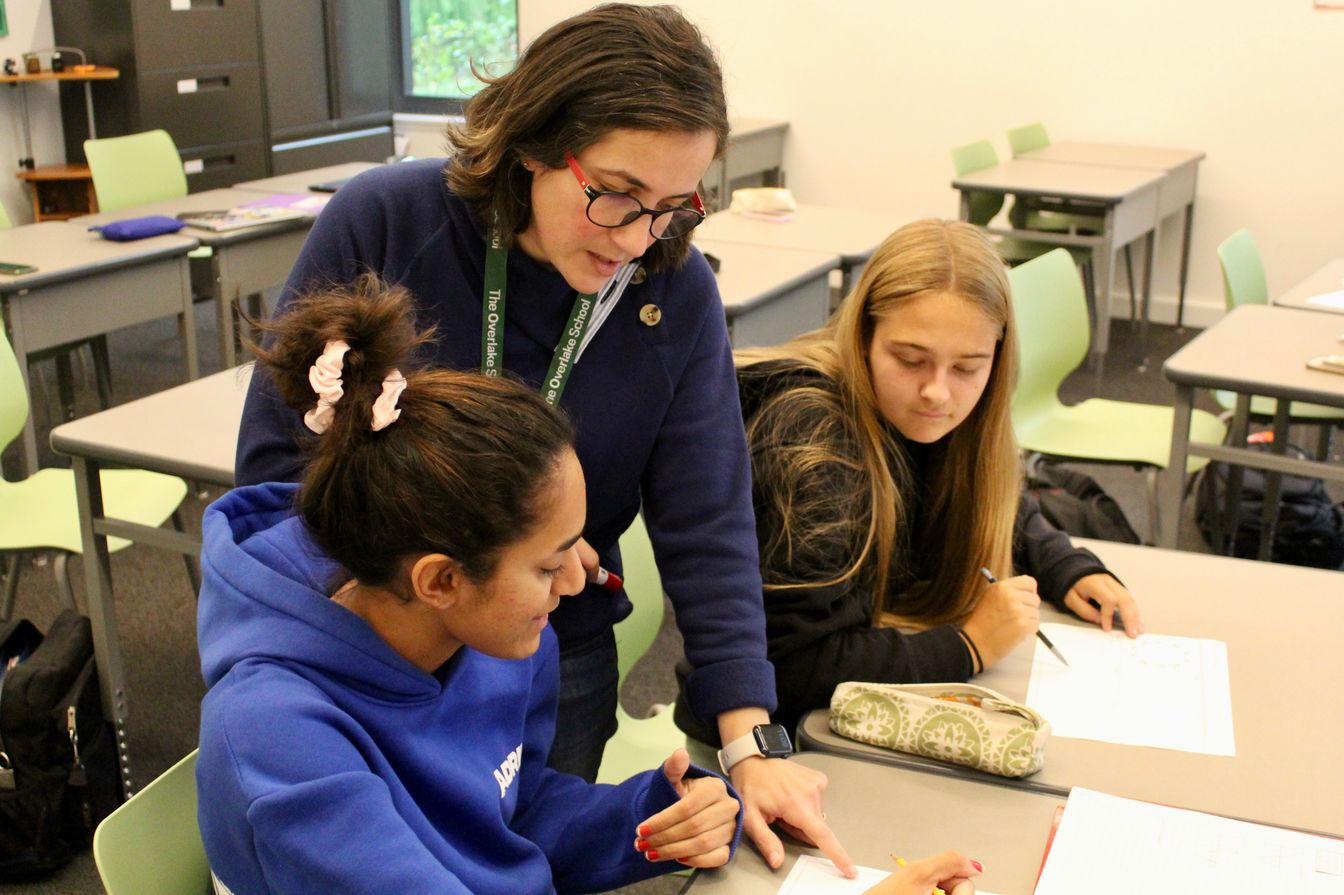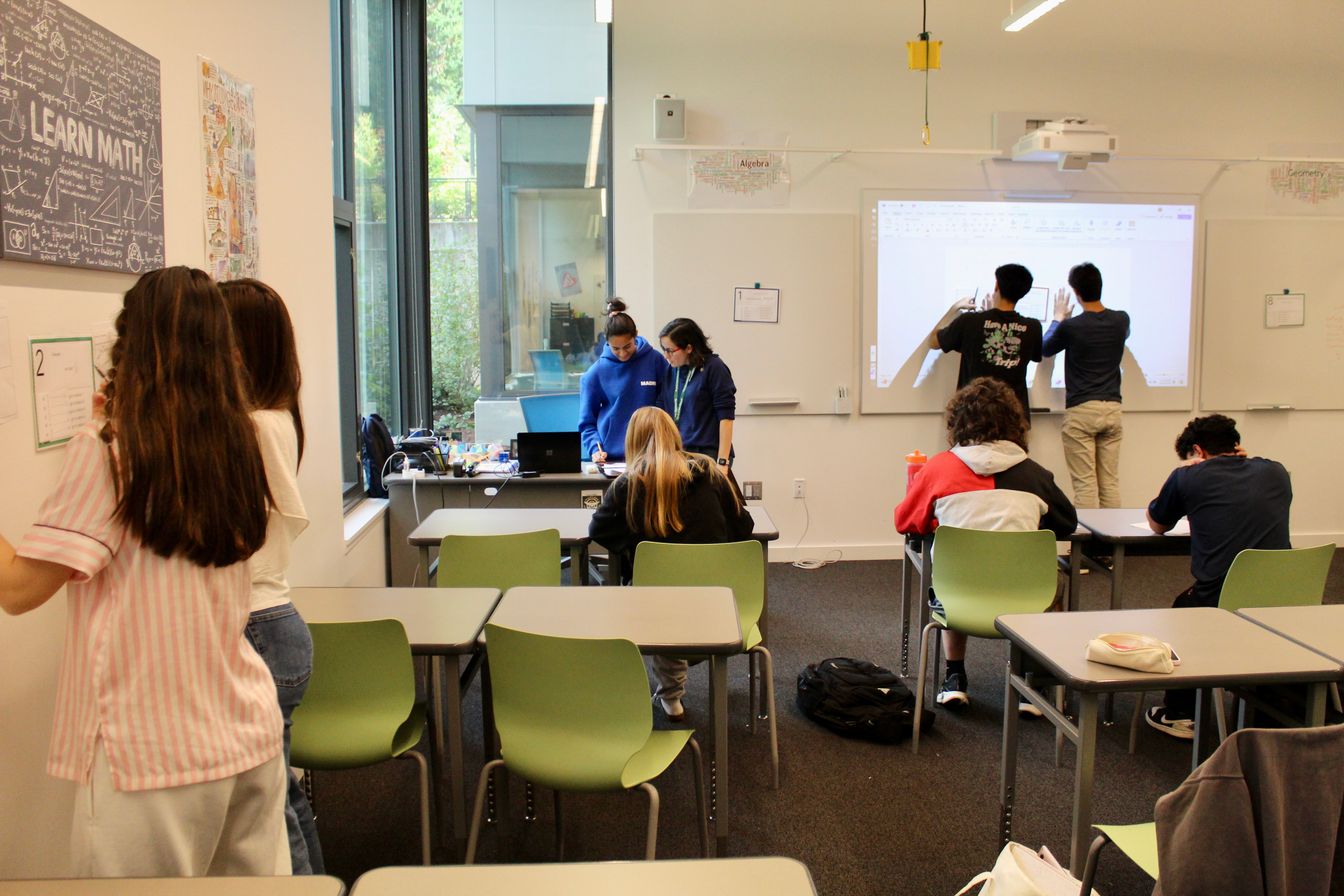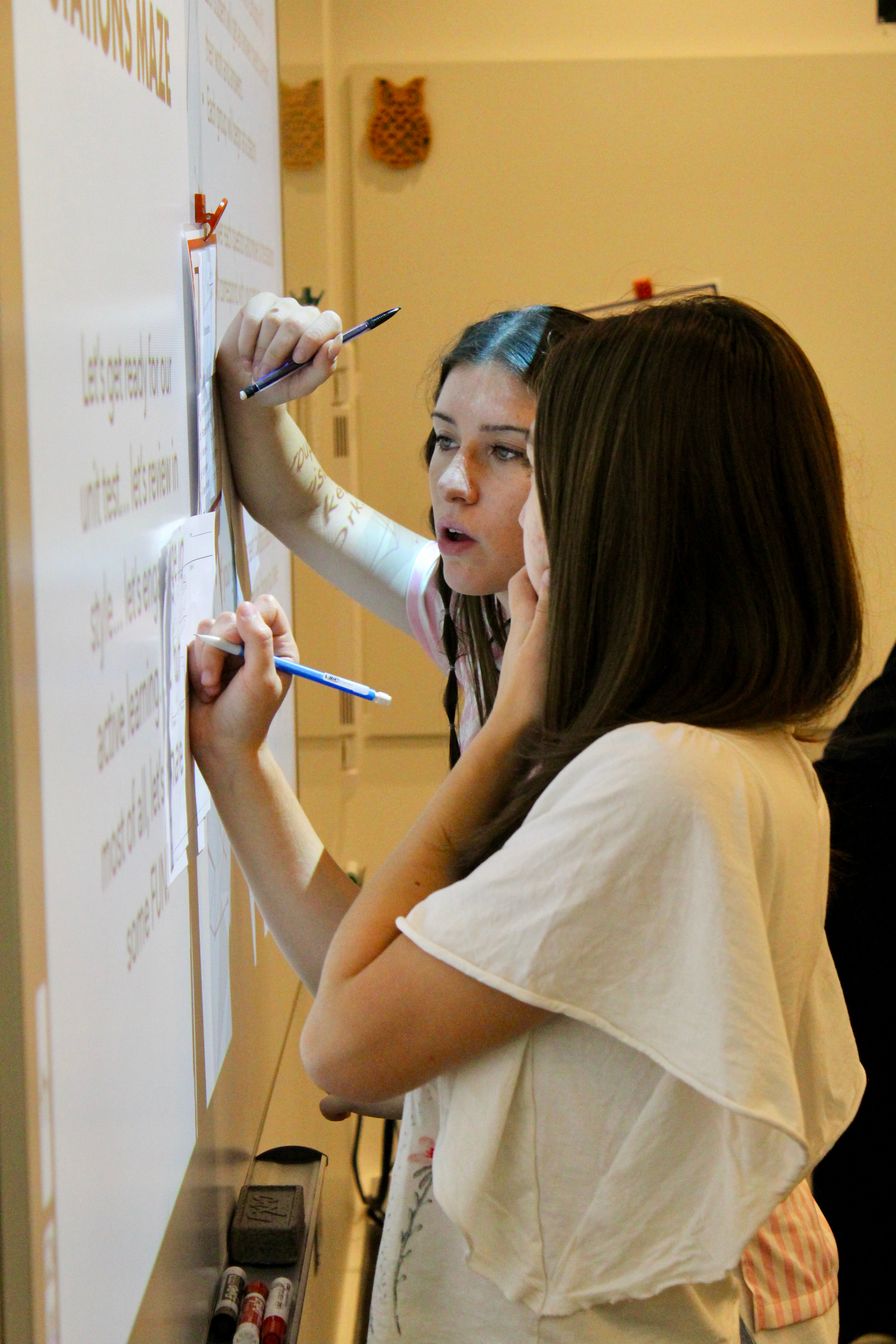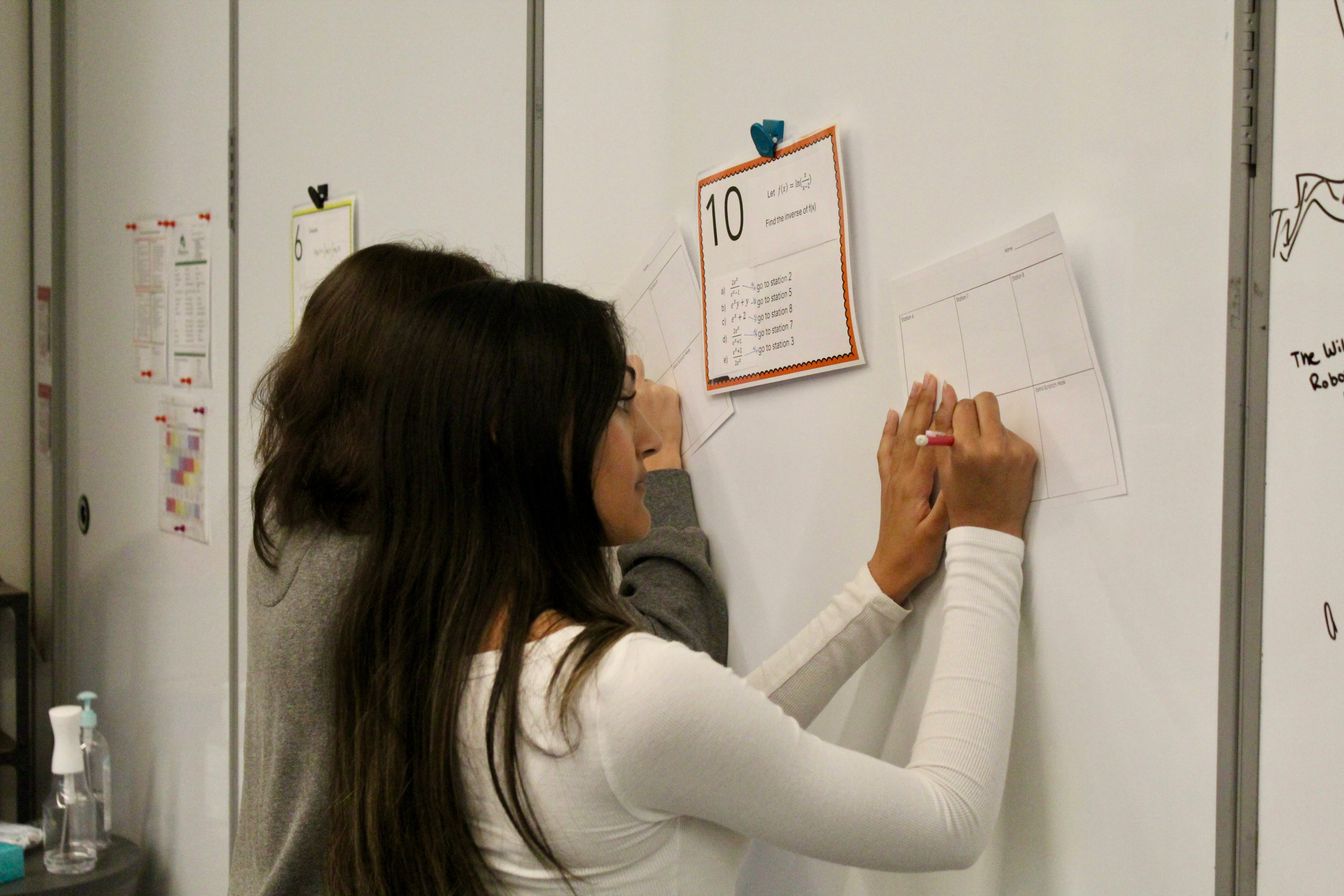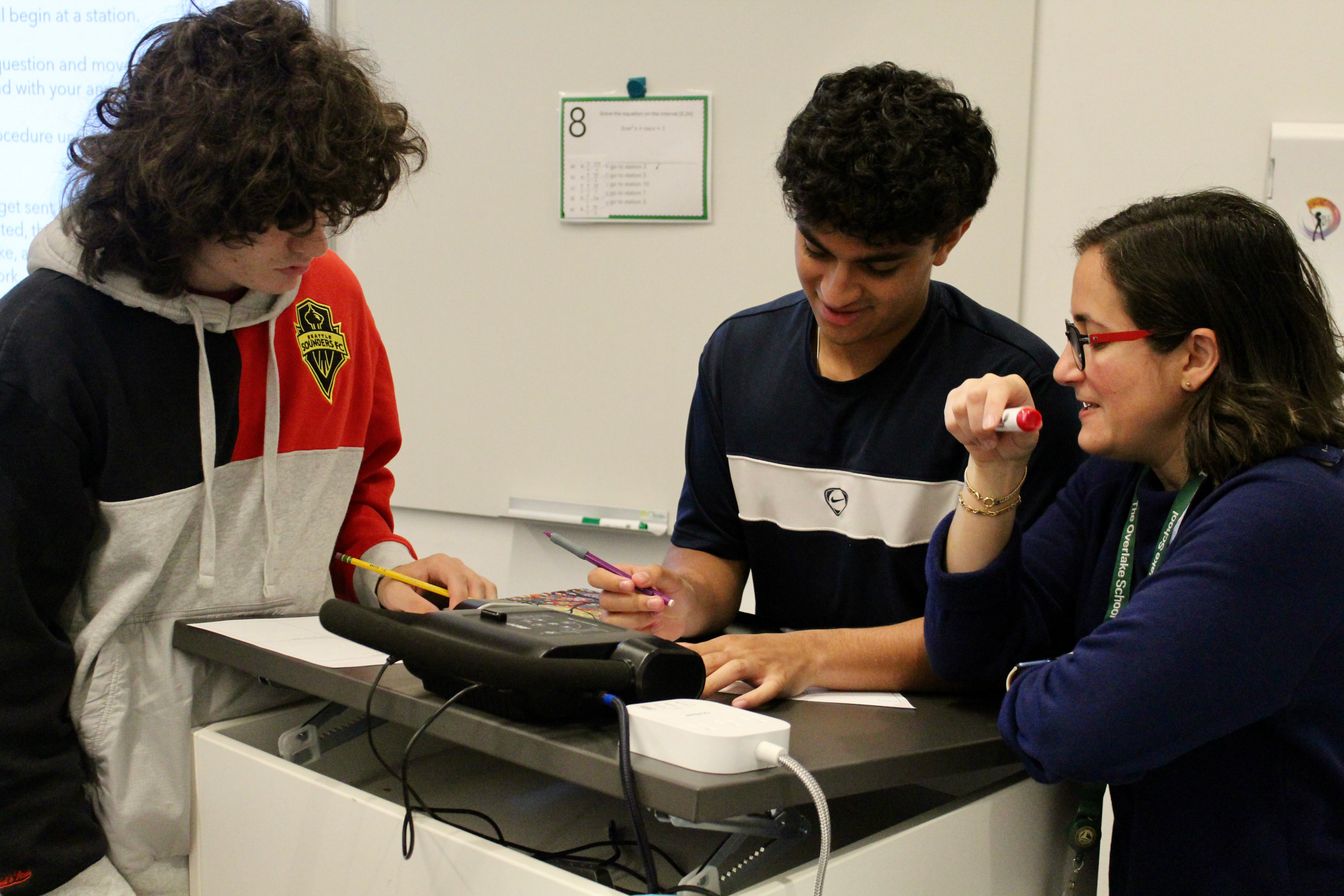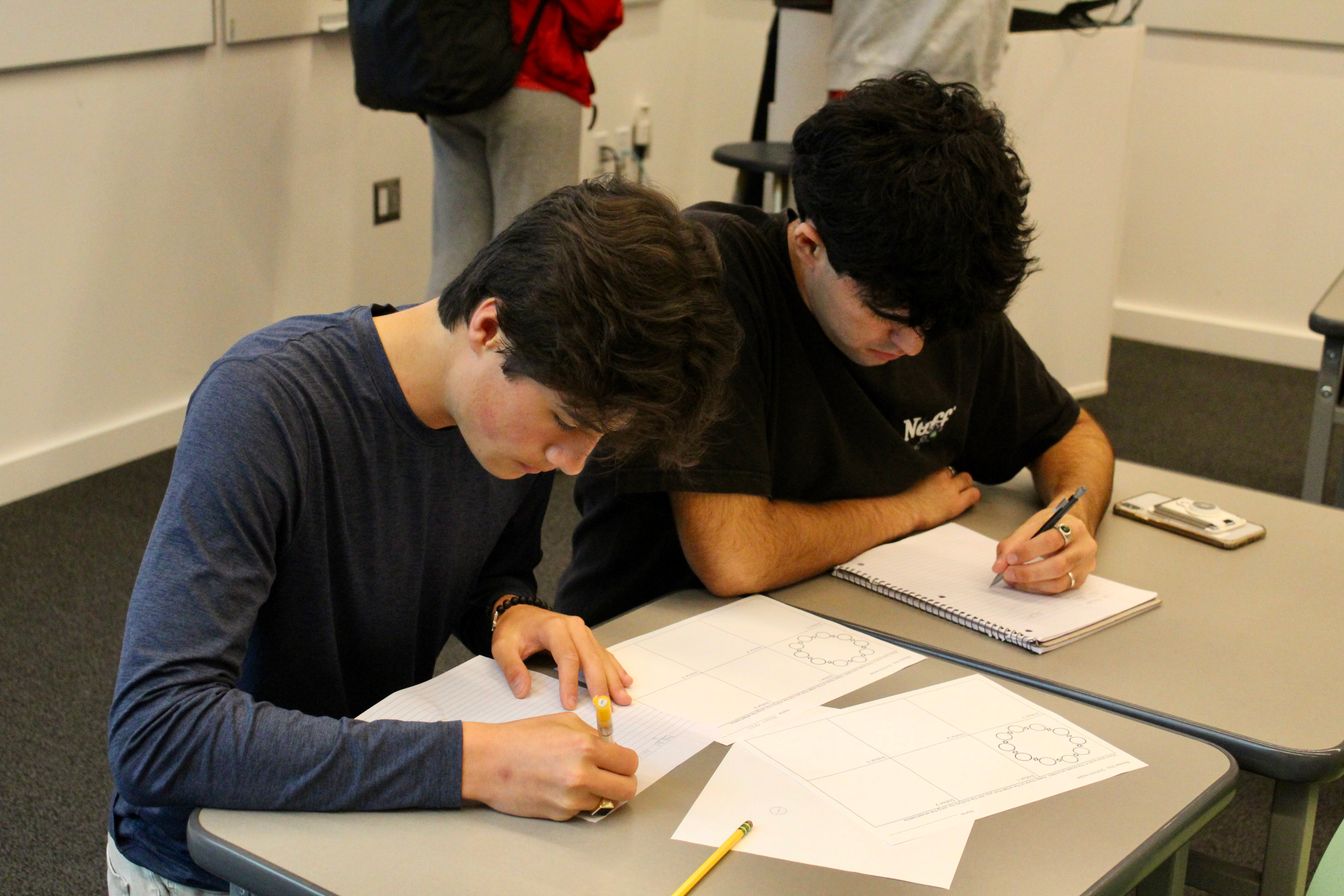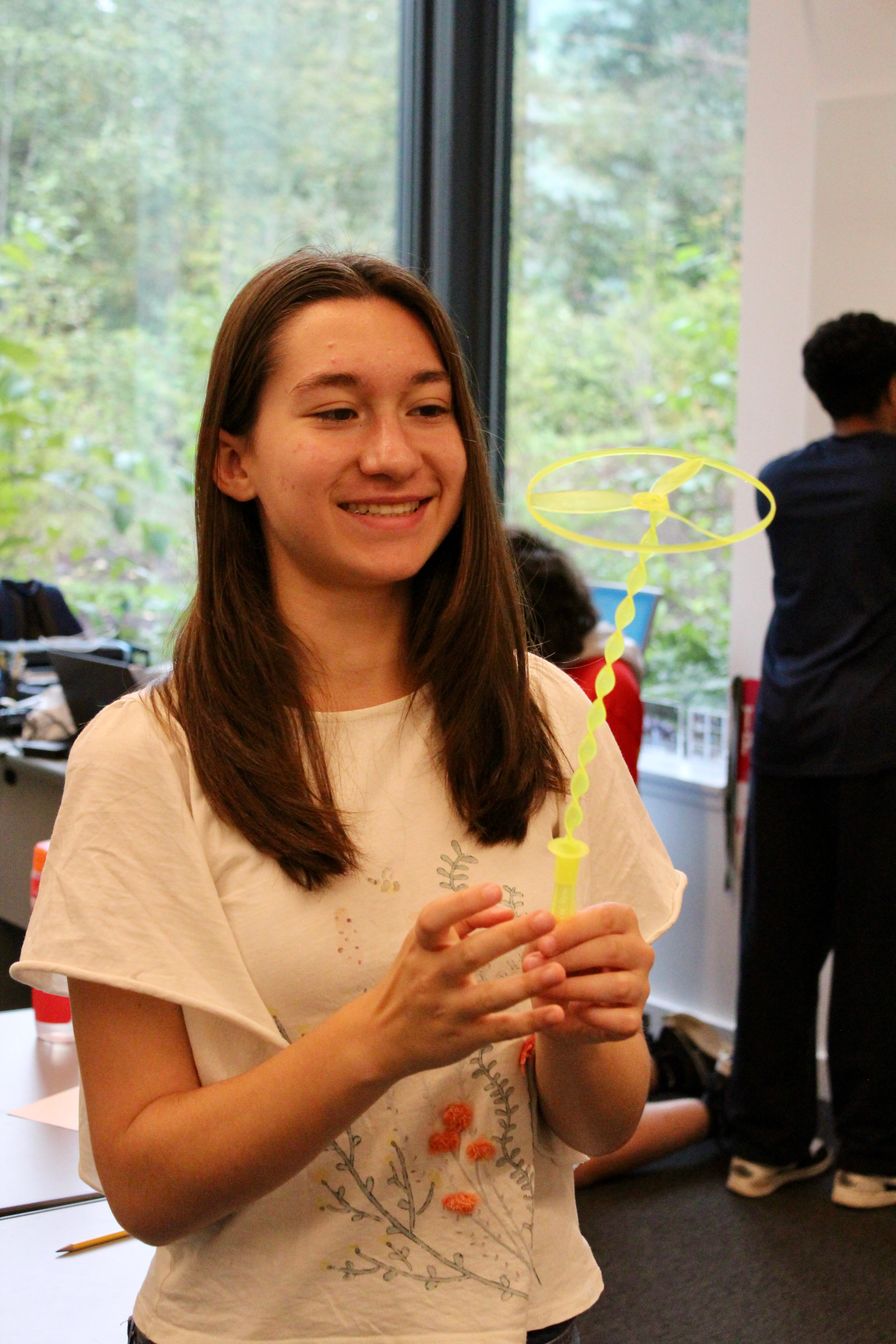- News
This Calc test prep is aMAZEing!
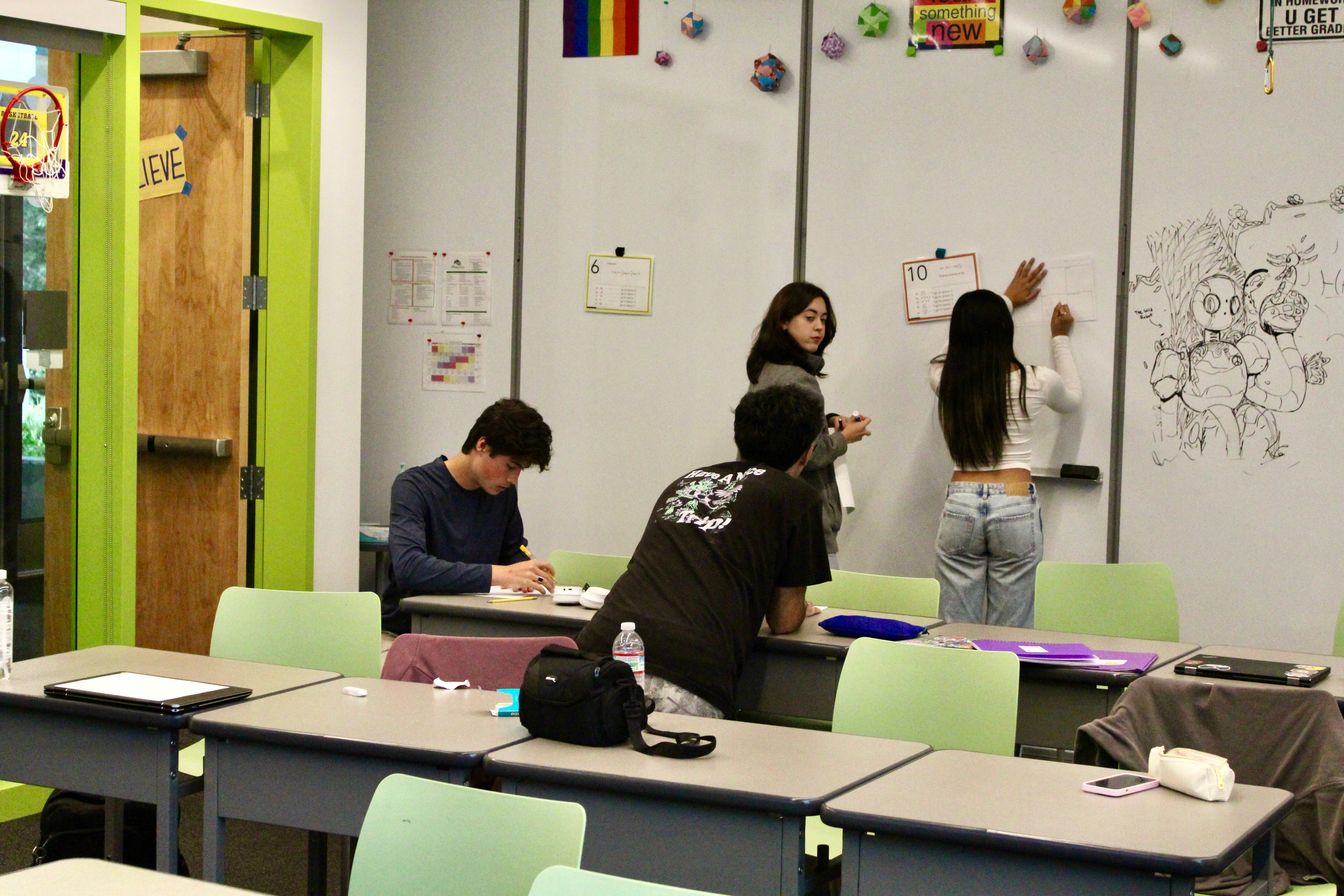
In some math classrooms, preparing for an upcoming calculus test might look like students seated at their desks, working on problems individually on a worksheet, while the teacher stands at a whiteboard helping to facilitate the various math problems. This is not what it looks like in Laya Fawal’s class or a lot of other Overlake math classrooms.
Fawal created a maze that students in teams of two use to work through a series of calculus problems, with the added challenge that the first team to complete the maze correctly wins a toy prize.
“I think a lot of Overlake students are competitive, so it makes you do it. And the fact that you go in a circle and not just get answers, you have to get it right and actually think about what you are doing,” explains senior Zara V.
“A maze requires students to get out of their seats, think critically, and make decisions as they solve problems,” explains Fawal. “This active learning and active problem-solving help reinforce concepts more effectively than passive completion of worksheet questions.”
“I prefer this over a traditional review packet because It forces you to be engaged because I want to win,” says Junior Matilde V., who indeed won the maze challenge with her partner Zara.
“What I really love about mazes is the immediate feedback,” says Fawal. “In a well-designed maze, correct answers lead students in the right direction, while incorrect answers prevent them from advancing. This immediate feedback helps students identify and correct mistakes as they go, improving learning retention.”
“Last class we did the very conventional method of working on a worksheet and I didn’t love that because it was bunch of problems, and I could just pick my own,” says Senior Mahi M. “Whereas here it is more catered to the problems on the test, which I appreciate. It also leads to a more competitive spirit, which is less of me working at my desk. Here I’m working with a partner and moving around.”
“Maze activities encourage collaboration and discussion among students. They work together in groups to find the correct path, deepening their understanding by explaining concepts to one another,” explains Fawal.
“In my opinion whatever makes the review as much like a test as possible is good review,” says Senior Ethan L. “Because the questions are going to be similar to what is on the test and because there is a factor of needing to move as quickly as possible, as you do on a test, I think it was a really good review.”
Ethan’s partner, Senior Alvaro C. agrees. “It was good motivation, as there was extra credit, and it makes you want to work for it. And it was nice to get up off our desk and move around a little and talk with other people. I think it was really fun.”
I’d say that’s high praise from students as they get ready to take their first unit test in Fawal’s calculus class.

